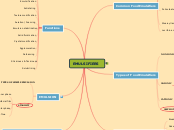EMULSIFIERS
Common Food Emulsifiers
Mono & Diglycerides
Sucrose esters
Sorbitan esters
Polisorbates
Polysorbate 60
Polysorbate 65
Polysorbate 80
Stearoyl lactylates
Lecithin and Derivatives
Types of Food Emulsifiers
NONIONIC
Mono & Diglycerides
Sorbitan esters
Sucrose esters
Polysorbates
Polyoxyethylene glycol oleates
ANIONIC
Stearoyl lactylates
Diacetyl tartaric esters of monoglycerides (DATEM)
Succinylated monoglycerides
CATIONIC
Amine compounds
AMPHOTERIC
Lecithins
Applications of Food Emulsifier
Bread, Rolls, Buns
Cakes
Confectionery products & Coatings
Frozen dairy products - Ice cream
Noodles & Pasta
Functions
Wetting
Palatability improvement
Emulsification
Antistaling
Texture modification
Aeration / Foaming
Emulsion stabilization
Solid fluidization
Crystal modification
Agglomeration
Defoaming
Stickiness & Tackiness
Solubilizing
EMULSION
TYPES OF SIMPLE EMULSION
Water in oil (W/O)
Oil in water (O/W)
STABILITY
Degree of division of the inner phase
Quality/stability of the interfacial film
Viscosity of the outer phase
Ratio and the specific weight of the volumes of two phases
Hydrophilic Lipophilic Balance (HLB)
HLB of 3-6
Good w/o emulsifier
HLB of 7-9
Good wetting agent; can be used for w/o or o/w emulsifier
HLB of 10-18
Good o/w emulsifier
